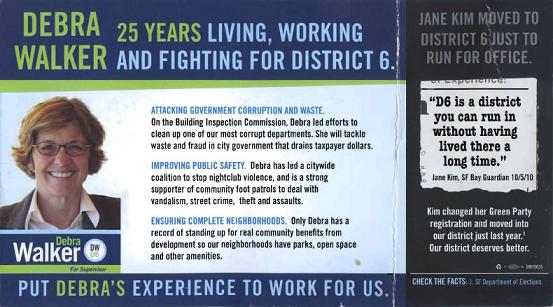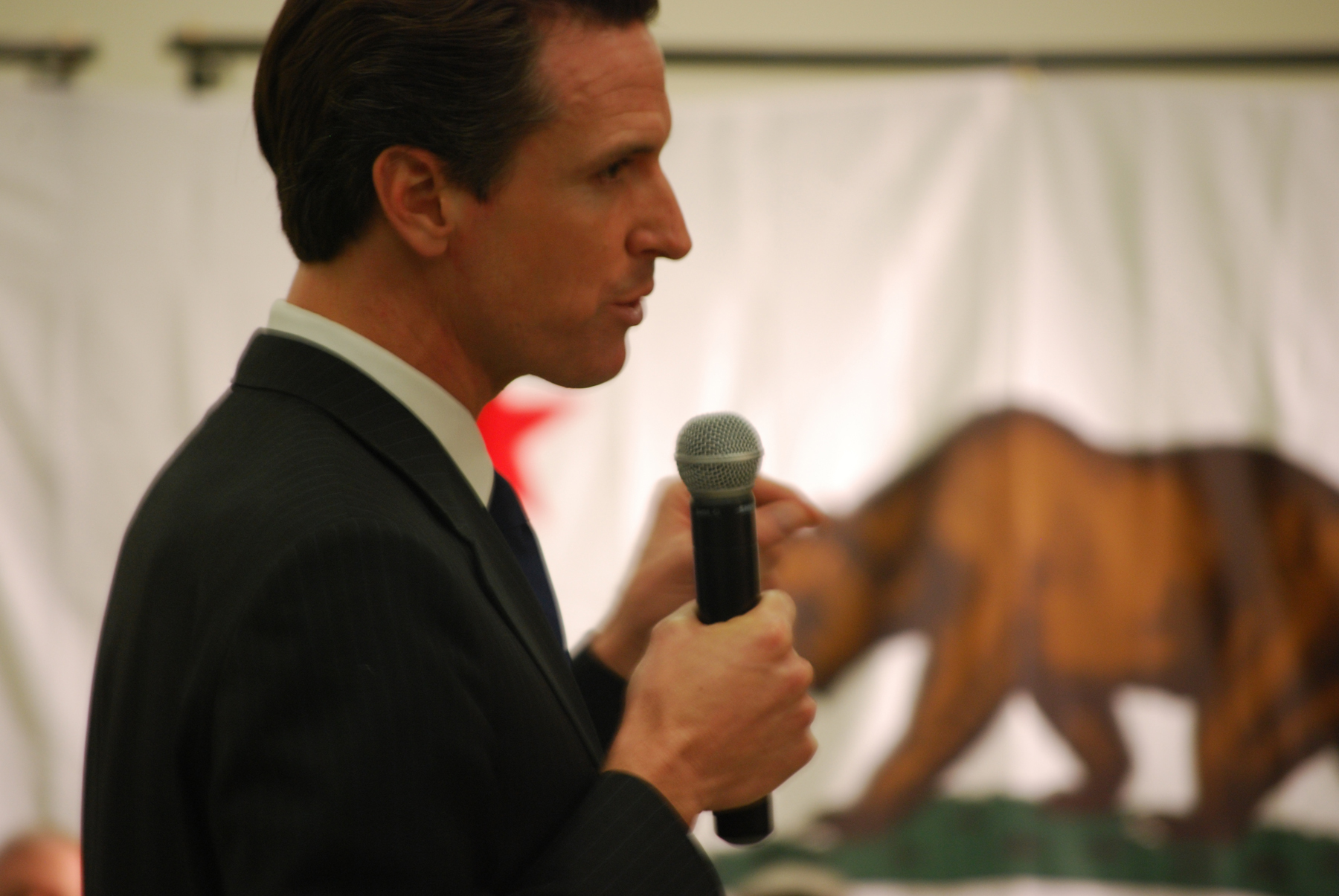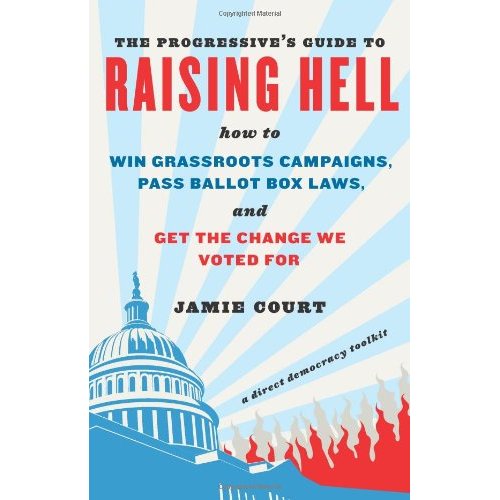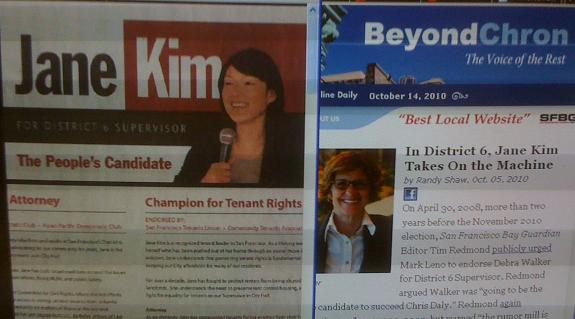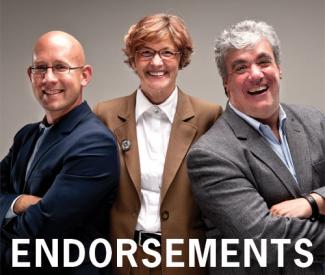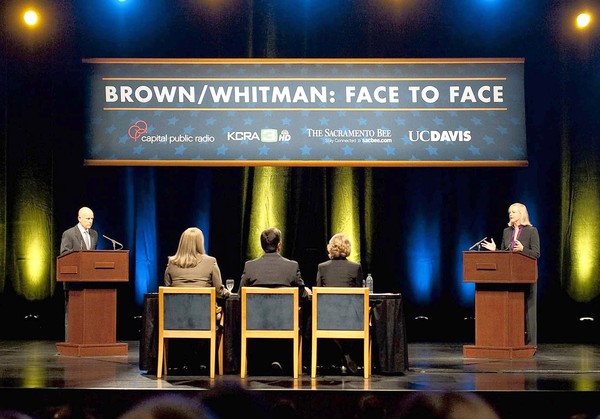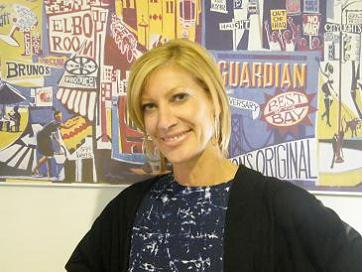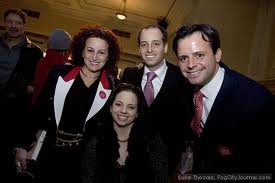There’s been lots of behind-the-scenes sniping and bad blood between supporters of D6 supervisorial candidates Debra Walker and Jane Kim, both strong and respected progressives who have resisted publicly criticizing one another…until now. Voters are receiving a mailer from the Walker campaign highlighting the facts that Kim is new to the district and a former Green.
Along the edge of a colorful mailer discussing Walker’s 25-year history in the district is a black and gray box that says “Jane Kim moved to District 6 just to run for office,” followed by a Kim quote from her endorsement interview with the Guardian: “D6 is a district you can run in without having lived there a long time.” And it closes with, “Kim changed her Green Party registration and moved into our district just last year. Our district deserves better.”
Kim campaign consultant Enrique Pearce called the mailer “disappointing” and “a desperate ploy,” saying that he hoped it wasn’t the start of open hostilities between the two progressive camps. Both candidates have refused to endorse one another in the ranked-choice election, and there have been lots of low-level hostilities between the two sides. But Pearce said, “We have tried to keep things positive.”
Kim didn’t return calls for comment, but her Facebook status was, “today was my very first cover story & very first hit piece, only six days left- i guess i should feel complimented that people think we are worth attacking.” The cover story was a glowing SF Weekly profile of Kim focused on how being Asian-American helps her political chances.
Walker campaign consultant Jim Stearns, whose office prepared the mailer, denied that it’s a hit piece. “It’s a comparison piece between Debra and Jane on a particular issue or qualification, not a personal attack,” Stearns said. “To us, it’s a really important part of who Debra is and why she’s a great choice for the district because she’s lived and worked there for 25 years. We disagree with Jane that you can just move into a district to run and understand it.”
Yet D6 candidate Theresa Sparks, who has been targeted by progressive groups as a conservative who would alter the balance of power on the board, is also new to the district. So why is the Walker campaign targeting Kim? Stearns said he hasn’t seen any polling on the race, but he answered the question by highlighting the independent expenditures on Kim’s behalf that were funded partially by former Mayor Willie Brown and which appear to have been illegally coordinated with Pearce’s office.
“Once we found out that she is illegally raising money outside the bounds of campaign finance law and running an illegal money campaign, we became concerned they might be breaking other rules, giving them an undue advantage, and we felt like we had to respond,” Stearns said.
Pearce declined to address that charge, but he told the Guardian when we first broke that story that his office had severed ties with the group New Day for SF before the mailers went out. As for Kim’s qualifications to run for office, he cited her experience as an attorney, community organizer, and school board member and said, “I think Jane’s qualifications for office stand on their own merits.”
And he maintained that the Walker campaign had gone negative while Kim’s campaign wouldn’t, saying that damages the progressive movement. “The Debra Walker campaign chose to attack Jane for being a former Green Party member and for moving into the district last year,” he said. “They are doing it because they feel Jane is a mounting a serious challenge.”
Pearce also said that he hoped this would be the end of it, but Stearns says that there’s one more mailer on the way that mentions Kim. The Guardian endorsed Walker number one and Kim number two, writing that they are the “two leading progressives and would be better on the board than the remaining candidates.”
UPDATE: I just heard back from Walker, who said a representative’s connection to the district is an issue voters care about. “I think it’s important for people to know that [Kim recently moved into the district]. They seem to be skirting the issue or representing that she’s been there for a long time,” Walker said.
As for why they are criticizing Kim rather that Sparks, who seems like a bigger threat to progressives, Walker noted that independent groups, such as labor and the Tenants Union, have already been putting out mailers critical of Sparks. “This has always been part of our game plan,” Walker said, “differentiating and letting people know who I am and who the other top-tier people are.”

